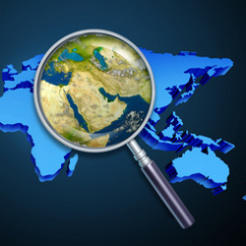Law firm Bates Wells and Braithwaite has been asked to assist with setting up several charities that aim to meet the humanitarian need and develop civil society in conflict-torn Syria.
In recent weeks the firm has been hired to advise on the establishment of three charities – Human Care Foundation Worldwide, Khayr and British Syrian Education Centre.
It has also worked jointly with the Muslim Charities Forum to set up a Humanitarian Group for Syria, bringing together three charities operating in Syria that have recently registered in the UK. As well as helping to coordinate their activities, the Group aims to create a focal point for receiving public donations and communicate more effectively about the current humanitarian crisis.
Augustus Della-Porta, an Arabic-speaking associate at BWB, says that in the long-term, the Group will provide some of the governance and capacity-building support that UK and Syrian-based organisations will need as they promote sustainable development in Syria.
Explosion in civil society activity
He said that the loss of state control in large parts of the country and a withdrawal of local services previously run by the state or religious institutions, has prompted a surge in civil society activity.
“What was largely a system of patronage, whereby the state funded its pet projects and tolerated a few other organisations, has exploded into a burst of activity,” said Della-Porta.
“People in Syria have taken it upon themselves, often at great personal risk, to distribute aid and provide basic services within their neighbourhoods. You have home-grown organisations organising food parcels, delivering healthcare or cleaning up the streets.
“They are doing a fantastic job in difficult and dangerous circumstances but further down the line, if they are to be sustainable, they are going to need direction and support. They will need advice on setting up proper structures, governance, and co-ordination with other organisations. This will be a huge task in a society where civil society was suppressed or run by the state.”
Syrian umbrella body
BWB has also been enlisted to help set up a Syrian civil society umbrella body called Watan, which means ‘nation’. It has been established in the UK with the intention of eventually transferring it to Syria. Its objective is to assist development in Syria by promoting civil society and its members will work to improve human rights, establish an independent media, and promote business and economic development.
Della-Porta said: “Watan aims to have a branch in each city in Syria and each country outside Syria where there is a Syrian community. They made it clear from the beginning they are not a political movement, but a model civil society organisation to which Syrians from all walks of life, ethnic background or religion, can join and play a positive part in a post-conflict Syria.”
Other Arab countries
Della-Porta has also been working with other organisations in the Arab region. He is setting up a human rights group that will operate in Egypt, and a UK charity that will be linked to a large Egyptian charity carrying out health, education and poverty-alleviation projects across Eqypt.
In Libya, it is estimated that more than 300 civil society groups were set up during the revolution where before there had been none.
BWB has already helped the Muslim Charities Forum to set up humanitarian umbrella bodies in Somali and Yemen, which are facing their own humanitarian disasters.
Della-Porta added: “The Arab Spring has produced a sea-change in the reach and prospects of civil society, even in countries such as Qatar that haven’t been directly affected. There is now a public space for civil society organisations to grow and flourish independently of the state.”









